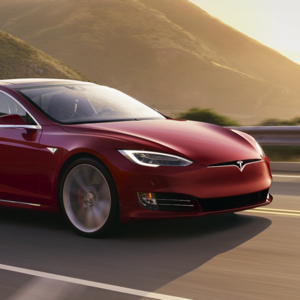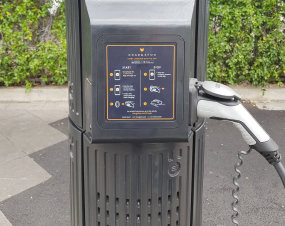It wasn’t so long ago that EVs were seen as tiny, urban novelty cars. The kind that can reverse into parking spots too short for a parallel. Smart cars, Renault Zoe, Mitsubishi I-MiEV — these were among the first EVs in the late 2000s and early 2010s.
Then along came Tesla. Suddenly EVs were fast and sleek, going toe-to-toe with combustion sports cars and coming out on top. Celebrities made headlines buying the first Roadster in 2008 and again when the Model S launched. As the 2010s went on EVs got faster and better, legacy brands got onboard and endorsed wholesale electrification for the next decade. The image of EVs had changed.
But as we round out 2019 and look to EVs’ future, it isn’t just shinier passenger cars that we see. Electric mobility tech is making its way to construction, to mining, to aviation. The face of industry — and EVs — is slowly shifting.
EV tech is coming to an industry near you
Big orders for electric vans
In September 2019 online retail giant Amazon made headlines with an order for 100,000 all-electric delivery vans from startup automaker Rivian — supposedly part of Amazon’s plan to become carbon neutral by 2040. Amazon had already invested $700m USD in Rivian prior to the deal.
100,000 vehicles of an all-new model would be a big ask for any company but it’s particularly bold for Rivian — who have yet to release a single vehicle for sale. Their R1 series of electric pickups and SUVs are set to launch in the US toward the end of this year.
Early this week Amazon & Rivian gave a first look at the design of the new vans:
If the order number seems massive, that’s because it is. Global delivery giant UPS boasts 123,000 delivery vehicles total including vans, tractors, and motorcycles.
A number set to grow. Late this January UPS announced their own order of 10,000 electric delivery vans from UK startup Arrival. FedEx, meanwhile, has been running 1000 electric vans for deliveries in California since last year.

Why vans? Why now?
Electrification is clearly on the agenda of the world’s delivery heavyweights.
Nobody finds electric vans as sexy as the latest Tesla or Porsche EV, but their shift from combustion fuels has enormous potential to reduce emissions around the world. These delivery deals are being made for tens of thousands of vehicles at a time — no other industry could hope to match those numbers.
And regardless of what their press releases say, we can be confident that these aren’t strictly emission-motivated decisions from the world’s biggest delivery companies. Delivery vans are on the road as much as possible; they clock up insane mileage over their lifetimes.
This kind of lifecycle can bring massive savings thanks to EVs’ lower operation costs. No fuel, no oil, no expensive engine or transmission parts to replace. Amazon and UPS are almost certainly paying more upfront, but they wouldn’t do it if they weren’t confident of savings down the line.
Electric vans have been around for a while now — the Renault Kangoo Z.E. has been used by Australian businesses for years including Australia Post. But they’ve always been hamstrung by low range and lack of major investment.
So why change now? Well, range is much less of a problem for EVs in 2020 than it was in 2014. Batteries are bigger, cheaper, and more efficient than ever before. Rivian haven’t revealed the battery to be used in their Amazon van, but their R1 vehicles are confirmed for an enormous 180 kWh battery.
Tesla claims their new Roadster, set to arrive in the next year, will have a 200 kWh battery delivering more than 1000km or range. And that’s in a 4-motor, space-conscious sportscar. The batteries in these vans will be exactly as big as they need to be.

Predictions and promises for the 2020 Tesla Roadster
Delivery date
So when can we expect to take an order from an all-electric delivery van? Amazon has stated ”plans to have 10,000 of the new electric vehicles on the road as early as 2022 and all 100,000 vehicles on the road by 2030.” UPS’ vans “will be rolled out over 2020-2024 with the option for a further order of 10,000”.
These are bold predictions from two automakers without any manufacturing experience between them. But if they do pull through it will be a massive step forward in electrifying the world’s delivery fleet.
Check back to the JET Charge blog for more EV news. You can follow our Facebook page for updates or contact us at info@jetcharge.com.au with EV charging inquiries Australia-wide.







